Healing From PTSD and Addiction: A Path to Recovery
Healing From PTSD and Addiction: A Path to Recovery

By The Recovery Village Columbus
Last Updated: September 15, 2023
PTSD and addiction often co-occur, but evidenced-based treatment options are available and can address both conditions simultaneously.
PTSD and addiction are two conditions that often occur together. When a person has both an addiction and a mental health disorder, they are said to have co-occurring disorders. The best treatment plan for co-occurring disorders treats both conditions at the same time rather than separately. Learn about signs, symptoms and treatment options for PTSD and addiction.
What Is PTSD?
PTSD is a mental health condition that happens after exposure to a traumatic event. In some cases, it occurs because of direct exposure to trauma, such as being threatened with a weapon, but it can also occur after witnessing a traumatic event or learning of such an event happening to a loved one. When people develop PTSD, they experience intrusion symptoms related to the event, which include:
- Flashbacks
- Unwanted memories
- Nightmares
- Intense psychological reactions to reminders of the event
PTSD also involves trying to avoid memories or reminders of the event and changes in mood and behavior. A person with PTSD may consistently show negative moods, believe they are to blame for the traumatic event or detach from others. They are likely to have trouble experiencing positive moods like happiness and satisfaction. They may also have angry outbursts with little warning, engage in reckless behavior and have a hard time sleeping.
If you believe that you or a loved one shows symptoms of PTSD, it’s important to see a mental health professional. A diagnostic evaluation can help to determine if you meet the criteria for PTSD, as outlined in the Diagnostic and Statistical Manual of Mental Disorders (DSM).
Symptoms of PTSD
The DSM outlines the diagnostic criteria for PTSD, including the symptoms a person must show to be diagnosed. When someone with PTSD has symptoms, they fall into the following categories:
Intrusion Symptoms
- Intrusive thoughts related to the traumatic event
- Upsetting nightmares related to the trauma
- Flashbacks, during which it feels as if the trauma is happening again
- Extreme stress when exposed to reminders of the traumatic event
- Physiological reactivity when reminded of the trauma (e.g., elevated heart rate)
Avoidance Symptoms
- Trying to avoid reminders of the event
- Attempting to block out distressing thoughts or memories of the event
Negative Alterations in Mood
- Not being able to remember details of the traumatic event
- Distorted negative thoughts, such as thinking that the entire world is unsafe
- Inappropriately blaming oneself or others for the event
- Experiencing negative emotions on a regular basis, including shame, guilt, anger and fear
- Lacking interest in your usual activities
- Feeling detached from other people
- Not being able to experience joy, happiness and other positive emotions
Alterations in Arousal and Reactivity
- Outbursts of anger with no warning
- Engaging in self-destructive behavior
- Being hypervigilant of surroundings
- Startling easily
- Having a hard time concentrating
- Experiencing disrupted sleep
Risk Factors for PTSD
Anyone can develop PTSD after a traumatic event, but some people are at a higher risk for PTSD than others. Research has consistently found the following risk factors are associated with PTSD development:
- Being female
- Belonging to indigenous populations in the Americas
- History of medical problems
- Family history of psychiatric disorders
- Cumulative exposure to multiple traumas
- Exposure to more severe traumatic events
How Trauma in the Military Can Lead To PTSD
Traumatic experiences during service can lead to PTSD among military members. For example, combat experience can be traumatic, as a person may be placed into life-threatening situations or witness death or severe injury to fellow soldiers.
Military life can also expose a person to repeated traumas, as they often encounter life-threatening situations, especially when serving in combat. Military members may be exposed to terrifying experiences, such as bombings, ambushes, or acts of terror, which can be traumatizing.
Complex PTSD
While not a formal diagnosis in the DSM, professionals have begun to recognize a variation of PTSD called complex PTSD. This form of PTSD develops in response to repeated traumas, and psychology experts believe that the PTSD diagnosis does not capture the full extent of psychological harm that occurs with repeated, chronic exposure to trauma.
A person with complex PTSD experiences the symptoms traditionally related to PTSD and additional difficulties such as:
- Difficulty regulating emotions
- Negative self-perception, which can include feelings of guilt and shame
- Feelings of hopelessness and despair
- Chaotic personal relationships
Complex PTSD and addiction can go hand-in-hand, as a person exposed to repeated traumas may show reckless behavior or attempt to use substances to numb the pain from emotional regulation difficulties and chronic despair.
Veterans exposed to repeated traumas, such as being repeatedly held captive as prisoners of war, may be at risk of complex PTSD.
Connection Between PTSD and Addiction
According to research, nearly 50% of people with PTSD have a co-occurring substance use disorder, suggesting a strong overlap between PTSD and drug addiction. Drugs and alcohol can become a coping mechanism for trauma symptoms, but over time, with repeated self-medication, a person can develop an addiction. Drugs and alcohol may provide temporary relief from symptoms like sleep disturbances, intrusive memories and negative emotions, but over time, substance misuse is likely to make mental health functioning even worse.
How To Help Treat PTSD and Addiction
A patient with PTSD and addiction should receive integrated treatment that addresses both conditions at the same time. Consider some helpful tips if you or a loved one is seeking treatment.
Types of Therapy To Consider
Several effective, evidence-based therapies are available for treating PTSD and addiction. Two specific forms of cognitive behavioral therapy (CBT), called cognitive processing therapy (CPT) and prolonged exposure (PE), are particularly beneficial for treating PTSD and can be effective for those recovering from PTSD and a co-occurring substance use disorder. EMDR, another type of therapy used in PTSD treatment, may also be beneficial for treating substance use disorders.
Basic Tips for Coping With PTSD on a Daily Basis
Beyond therapy, regular self-care and healthy coping strategies can help manage PTSD on a daily basis. Some helpful methods include:
- Following a daily routine
- Prioritizing sleep with a consistent sleep schedule
- Making time for relaxing activities and hobbies
- Engaging in regular physical activity
- Reaching out to supportive friends and family members when you’re struggling
Community Resources
If you’re recovering from PTSD and addiction, utilizing community resources is important. Your therapist may refer you to resources within the community, such as support groups or recovery-oriented housing. The VA offers support and resources for veterans, including information about support groups and a crisis hotline.
Frequently Asked Questions
How can PTSD contribute to the development of addiction?
PTSD is associated with unpleasant symptoms, such as sleep disturbances, nightmares, flashbacks and painful emotions. People may use drugs or alcohol to cope with and numb these symptoms or to forget about the problems they’re experiencing. Over time, repeated self-medication can lead a person to become dependent on drugs or alcohol, causing addiction to develop.
Are there any support groups or resources specifically for individuals healing from PTSD and addiction?
Many treatment centers offer co-occurring disorders treatment, which addresses addiction and co-occurring disorders like PTSD at the same time. Many of these programs provide groups geared toward trauma or co-occurring disorders. Some treatment centers even offer exclusive support groups specifically for populations like veterans at risk of co-occurring PTSD and addiction.
Is it possible to fully recover from both PTSD and addiction?
Quality treatment makes it possible to recover from PTSD and addiction so that symptoms no longer interfere with daily life. Evidence-based PTSD treatment, integrated with substance use disorders treatment, can help people recover and lead healthy, fulfilling lives.
Sources
National Institute of Mental Health. “Substance Use and Co-Occurring Mental Disorders.” March 2023. Accessed July 19, 2023.
Mann, Sukhmanjeet & Marwaha, Raman. “Posttraumatic Stress Disorder.” National Library of Medicine, January 30, 2023. Accessed July 19, 2023.
Tortella-Feliu, Miquel, et al. “Risk factors for posttraumatic stress disorder: An umbrella review of systematic reviews and meta-analyses.” Neuroscience & Biobehavioral Reviews, December 2019. Accessed July 19, 2023.
U.S. Department of Veterans Affairs. “Complex PTSD.” Accessed July 19, 2023.
McCauley, Jenna; Killeen, Therese; Gros, Daniel; Brady, Kathleen; & Back, Sudie. “Posttraumatic Stress Disorder and Co-Occurring Substance Use Disorders: Advances in Assessment and Treatment.” Clinical Psychology (New York), 2012. Accessed July 19, 2023.
McDevitt-Murphy, Meghan; Fields, Jordan; Monahan, Christopher; & Bracken, Katherine. “Drinking motives among heavy-drinking veterans with and without posttraumatic stress disorder.” Addiction Research & Theory, 2015. Accessed July 19, 2023.
National Center for PTSD. “Effective Treatments for PTSD: Consider Cognitive Behavioral Therapy (CBT) as First Line Treatment.” January 2015. Accessed July 19, 2023.
Valiente-Gómez, Alicia, et al. “EMDR beyond PTSD: A Systematic Literature Review.” Frontiers in Psychology, September 26, 2017. Accessed July 19, 2023.
U.S. Department of Veterans Affairs. “Peer Support Groups.” Accessed July 19, 2023.

Questions?
Our Recovery Advocates are ready to answer your questions about addiction treatment and help you start your recovery.
